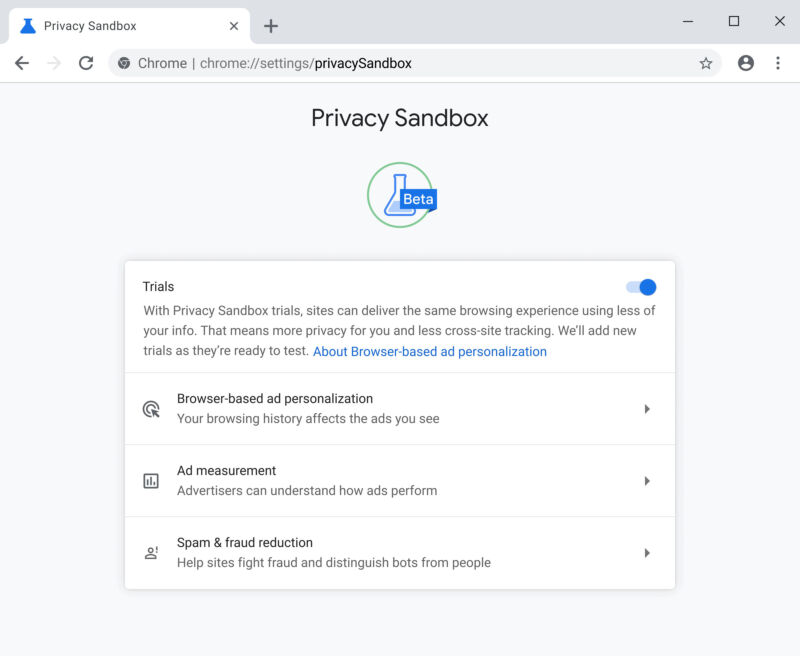Chrome’s “Topics” advertising system is here, whether you want it or not

Enlarge / The Privacy Sandbox settings. (credit: Google)
Google is on a quest to kill the third-party web cookie, which is often used by advertisers to track users for targeted ads. Unlike other browser companies like Apple and Mozilla, which block third-party cookies outright, Google is one of the world's largest advertising companies. It doesn't want to kill the third-party cookie without first protecting its primary revenue source. Google seems to view user tracking as a mandatory part of Internet usage, and instead of third-party cookies, it wants to build a user-tracking system directly into its Chrome browser. Google's eye-roll-inducing name for this advertising system is the "Privacy Sandbox," and on Thursday, the company released its latest tracking solution in Chrome's nightly "Canary" builds.
The latest Chromium Blog post laid out the current timeline, "Starting today, developers can begin testing globally the Topics, FLEDGE, and Attribution Reporting APIs in the Canary version of Chrome. We'll progress to a limited number of Chrome Beta users as soon as possible. Once things are working smoothly in Beta, we'll make API testing available in the stable version of Chrome to expand testing to more Chrome users."
Topics will have Chrome locally track your browsing history and build a list of interests, which Chrome will then share with advertisers whenever they ask for ad targeting. If you want a breakdown of the API name-checked in Google's statement, the FLEDGE API is responsible for both running an ad action directly on your device and picking an advertiser and then targeting users based on behavior, like leaving an item in a shopping cart. The Attribution Reporting API is responsible for measuring ad clicks, impressions, and tracking purchase conversions.
Read 4 remaining paragraphs | Comments